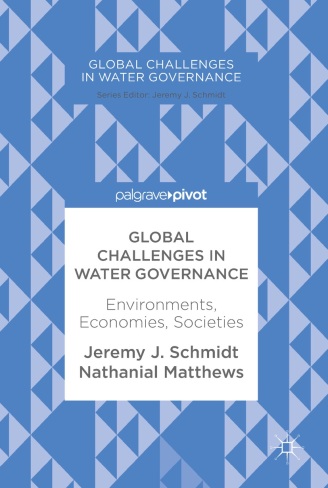 Very pleased to announce my new book, co-authored with Nathanial Matthews, is now out with Palgrave Macmillan. A description of the book is below (or here) and the publisher’s website is here. I was delighted by the endorsement from Carl Folke, as one of the key things the book strives for is to get at the core issues in a concise and clear manner.
Very pleased to announce my new book, co-authored with Nathanial Matthews, is now out with Palgrave Macmillan. A description of the book is below (or here) and the publisher’s website is here. I was delighted by the endorsement from Carl Folke, as one of the key things the book strives for is to get at the core issues in a concise and clear manner.
Global Challenges in Water Governance: Environments, Economies, Societies
“A beautiful synthesis of the emergence of water governance, its significance in human affairs, and the challenges it entails on a human dominated planet. Short, comprehensive, and easy to read. I can highly recommend it.” ~ Carl Folke, Science Director and Co-Founder of Stockholm Resilience Centre, Sweden
This book presents a historically situated explanation of the rise of global water governance and the contemporary challenges that global water governance seeks to address. It is particularly concerned with connecting what are often technical issues in water management with the social and political structures that affect how technical and scientific advice affects decisions. Schmidt and Matthews are careful to avoid the pitfalls of setting up opposing binaries, such as ‘nature versus culture’ or ‘private versus public’, thereby allowing readers to understand how contests over water governance have been shaped over time and why they will continue to be so.
Co-written by an academic and a practitioner, Global Challenges in Water Governance combines the dual concerns for both analytical clarity and practical applicability in a way that is particularly valuable both for educators, researchers, decision-makers, and newcomers to the complexities of water use decisions.
